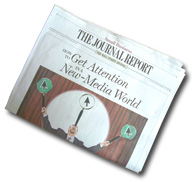You’re playing Black Jack at some little out-of-the-way gambling joint in Nevada. You discover –beyond all doubt– that the dealer is cheating. No question. Knowing this, is it even possible for you to cheat? I mean, once the honesty of the game has been compromised, how can the other players “cheat?”
Your Sunday School teacher would tell you that two wrongs don’t make a right. And that cheating –even though the dealer or another player is cheating– is wrong because it harms you (at some moral/ethical level). And, perhaps, once you begin cheating, it some how validates the immoral behavior of the dealer.
If Congress and the White House are the casinos, they’re running a lot of crooked tables. Pissing away our tax dollars faster than we can send them to DC. I don’t have the balls to cheat on my taxes but I’m not sure I’d vote to convict someone that did.
“If you’re unhappy with your elected officials, smays, you should work within the system to elect new people to represent you.” Yeah, yeah, yeah. That’s like saying, if you think this carney game is fixed, perhaps you should try one on the other side of the midway (I just need one more metaphor to tie the record).
In the words of Howard Beale/Paddy Chayefsky (Network):
“I want you to get mad. I don’t want you to protest. I don’t want you to riot. I don’t want you to write to your congressman because I wouldn’t know what to tell you to write. I don’t know what to do about the depression and the inflation and the Russians and the crying in the streets. All I know is first you’ve got to get mad.”
If you’d like to comment on this post… write your congressman.



 That’s the headline on a
That’s the headline on a